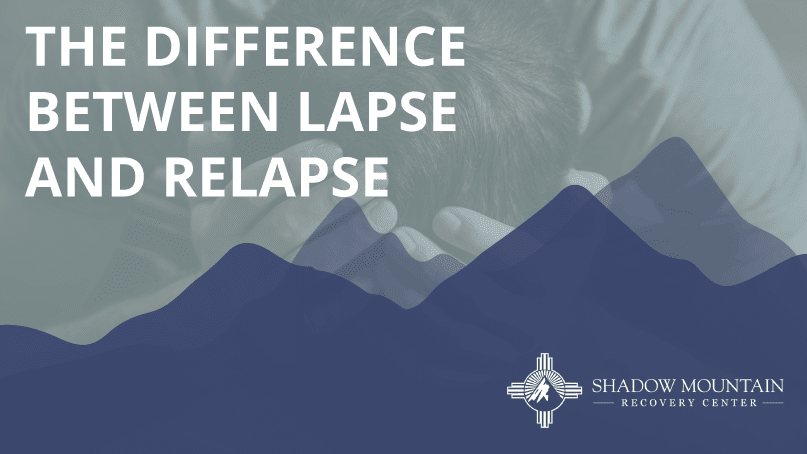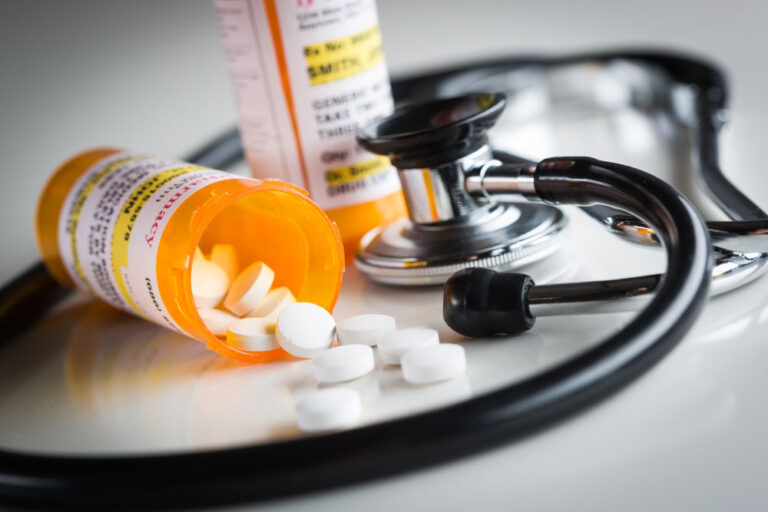The Difference Between Lapse and Relapse
In the addiction recovery world, there’s a word commonly used to describe a person who has returned to the substance that led to their treatment to begin with.
That word is relapse. It’s a word that’s tossed around with relative ease by those both inside and outside the field of treatment and recovery.
Often, a lapse is called a relapse without the speaker knowing the difference. This page will help you identify if you or your loved one has experienced a lapse or a relapse.
What Exactly Is a Relapse?
Relapse is commonly used when referring to any drug use after recovery has begun, but it’s often misused.
Relapse, by definition, is a verb meaning to suffer deterioration after a period of improvement. In simpler terms, a relapse is a full-blown resumption of an addiction that was at one time stopped, or the person attempted to stop it.
Unfortunately, in many circumstances, a person will view any slip from recovery as a full-blown relapse.
What Exactly Is a Lapse?
So, if returning to drug use is not always a relapse, what is it? The answer is a lapse.
While in a relapse, a person in recovery will return to the way they were using substances before, or even worse. In a relapse, a person has returned to addiction.
This is not the same as a lapse, though many may think it is.
A lapse, by definition, is a temporary failure of concentration, memory, or judgment. The key word in the definition of a lapse is temporary.
It’s clear that recovery comes with the risk of returning to drug use. There’s always the temptation to reach for another drink or to get high again, and these thoughts don’t make you weak—they make you human.
When you’re in recovery, lapses can happen and so can relapses. However, they don’t define you.
Recovery Is Never Perfect When Fighting Addiction

Recovery is a battle you must continue to fight over and over again as temptations and cravings arise.
Temptations may occasionally win while you are in recovery and lead you or your loved one into a lapse or relapse. Lapses and relapses can be dangerous in similar ways to the original substance use that led to struggling with addiction.
Causes of Lapse vs Relapse
The biggest cause for concern in any lapse or relapse is a person will believe they can return to consuming the drug/substance at the level they were taking prior to beginning recovery or quitting in general. They don’t realize their body is no longer able to handle that amount. This puts them at risk of overdose.
It’s incredibly difficult to admit when you’ve slipped up in life or made a mistake. That’s just true in life as a whole. When slipping up or lapsing while in recovery from addiction, the pressure to not open up about those moments is even greater because of the stigma around it.
When you have lapsed or relapsed into drug use, your life depends on being open and honest. There are people who want to hear from you and help you.
Treatment Built For You – Even After Relapse
When you begin recovery for substance use, you’re in recovery for the rest of your life. This is why it’s important to have a team and support system behind you to help you through each step, misstep, or challenge you may face in your journey.
In choosing a team, it’s important to note how that team will support you before, during, and after your treatment with them. Most of the time, when using the guidance of a treatment facility, it’s important to make sure there’s a program of aftercare set up to continue helping you after you’ve completed a treatment program.
Treatment programs vary in length but should always come with an aftercare program.
Shadow Mountain Recovery is a community of recovery centers with three locations in New Mexico.
A big part of the path to recovery occurs after the treatment has taken place, and that’s why Shadow Mountain has built a strong aftercare plan for each client who comes in for treatment.
During your time at Shadow Mountain, you will receive evidence-based treatment with an underlying holistic approach that treats body and mind. Programming is carefully customized for each individual’s needs.

Call Shadow Mountain Recovery For Help Today
Whether you’re already in recovery and have experienced a lapse or relapse, or you’re interested in learning about recovery for the first time, Shadow Mountain Recovery is interested in hearing from you. We can help.
Call today at 855-700-1667 if you have any questions about treatment or just want to talk about your recovery journey.









